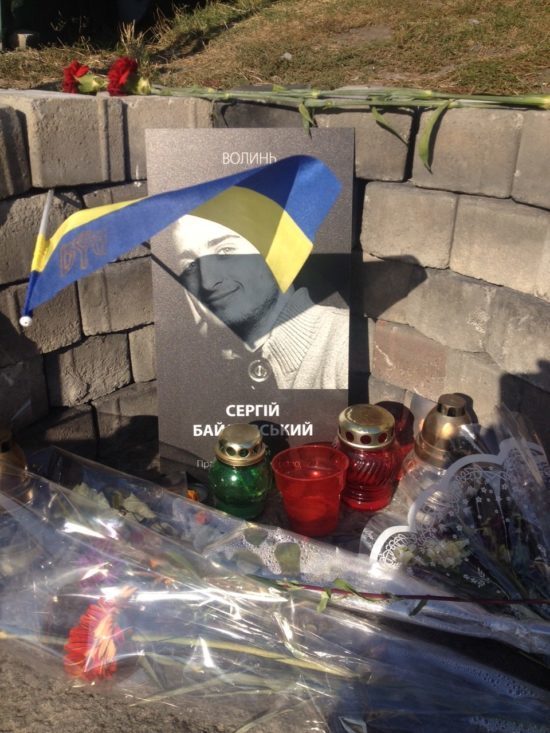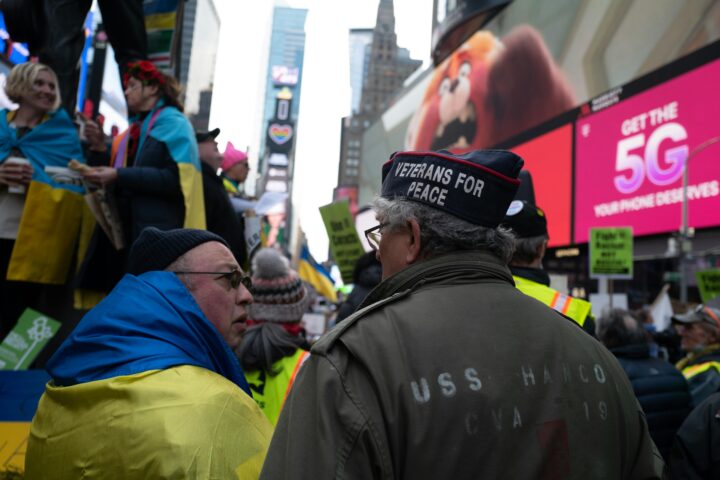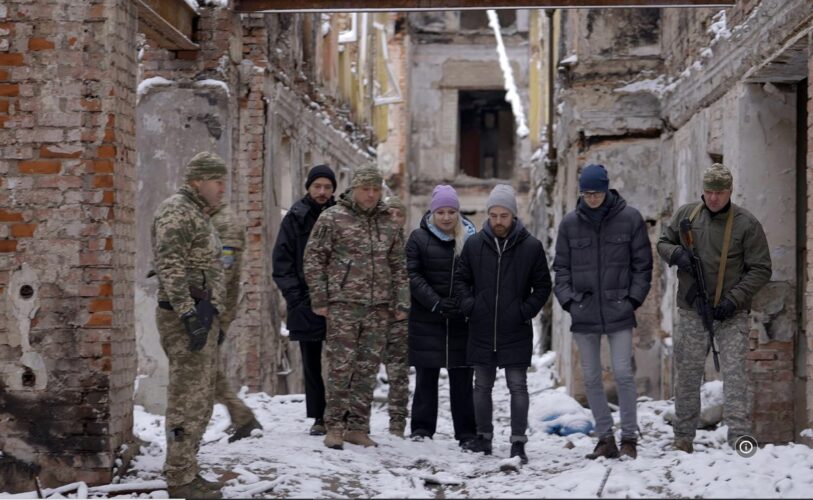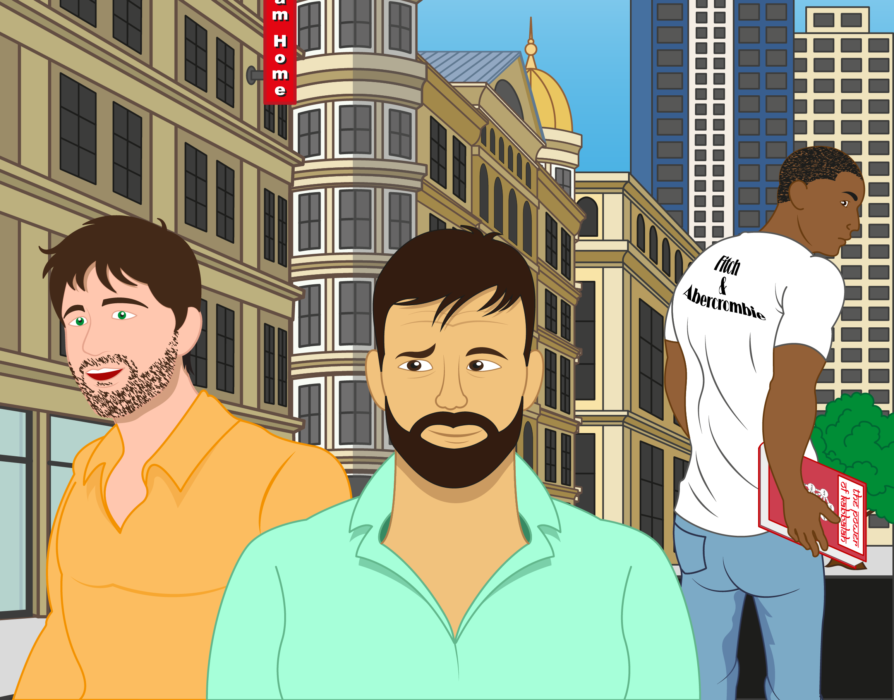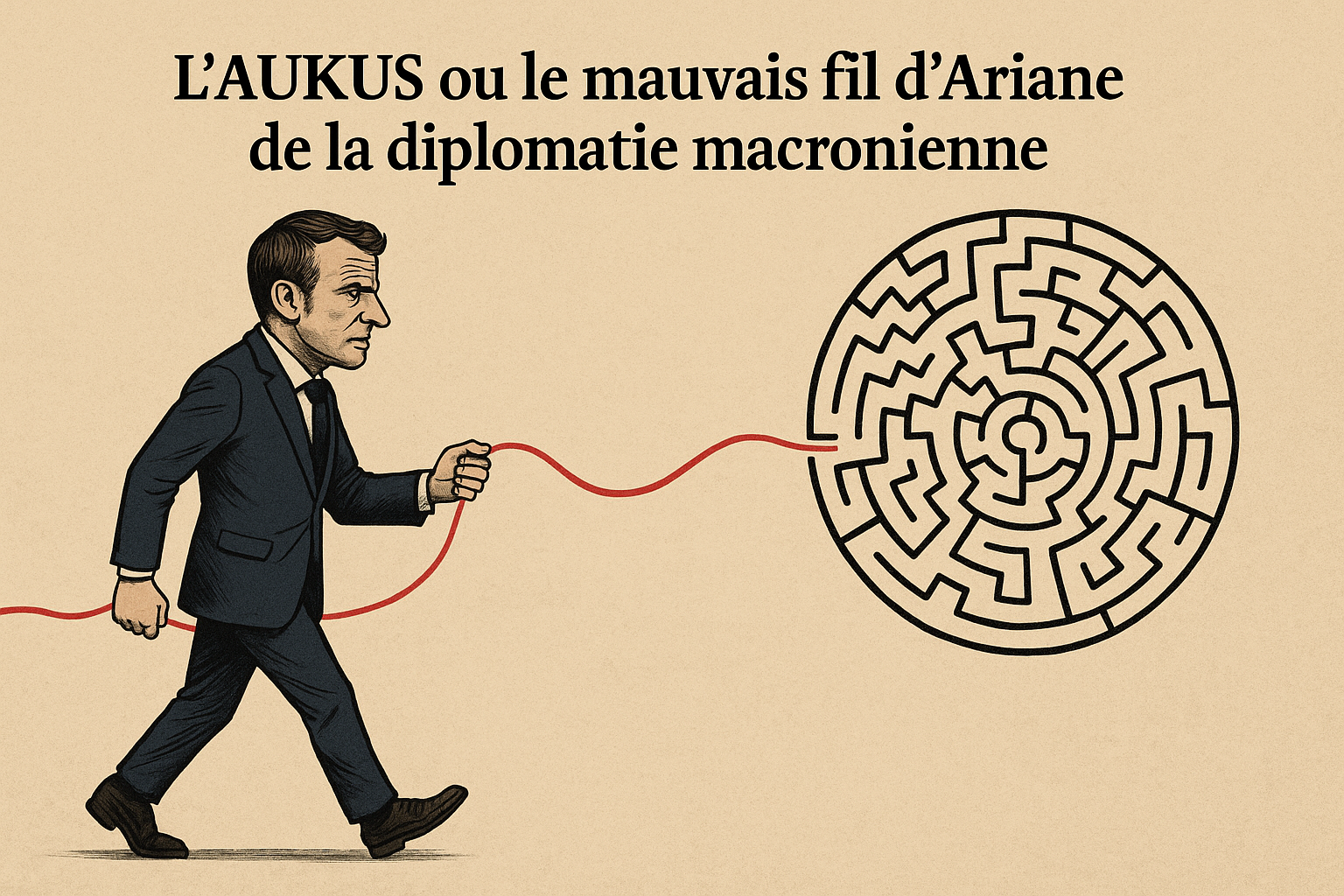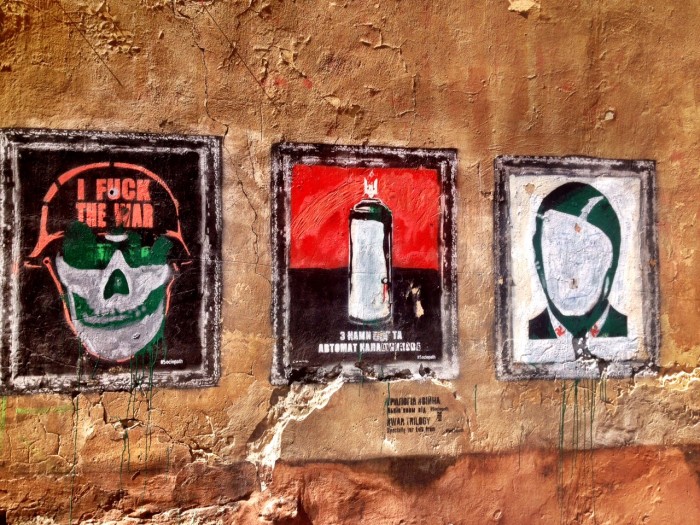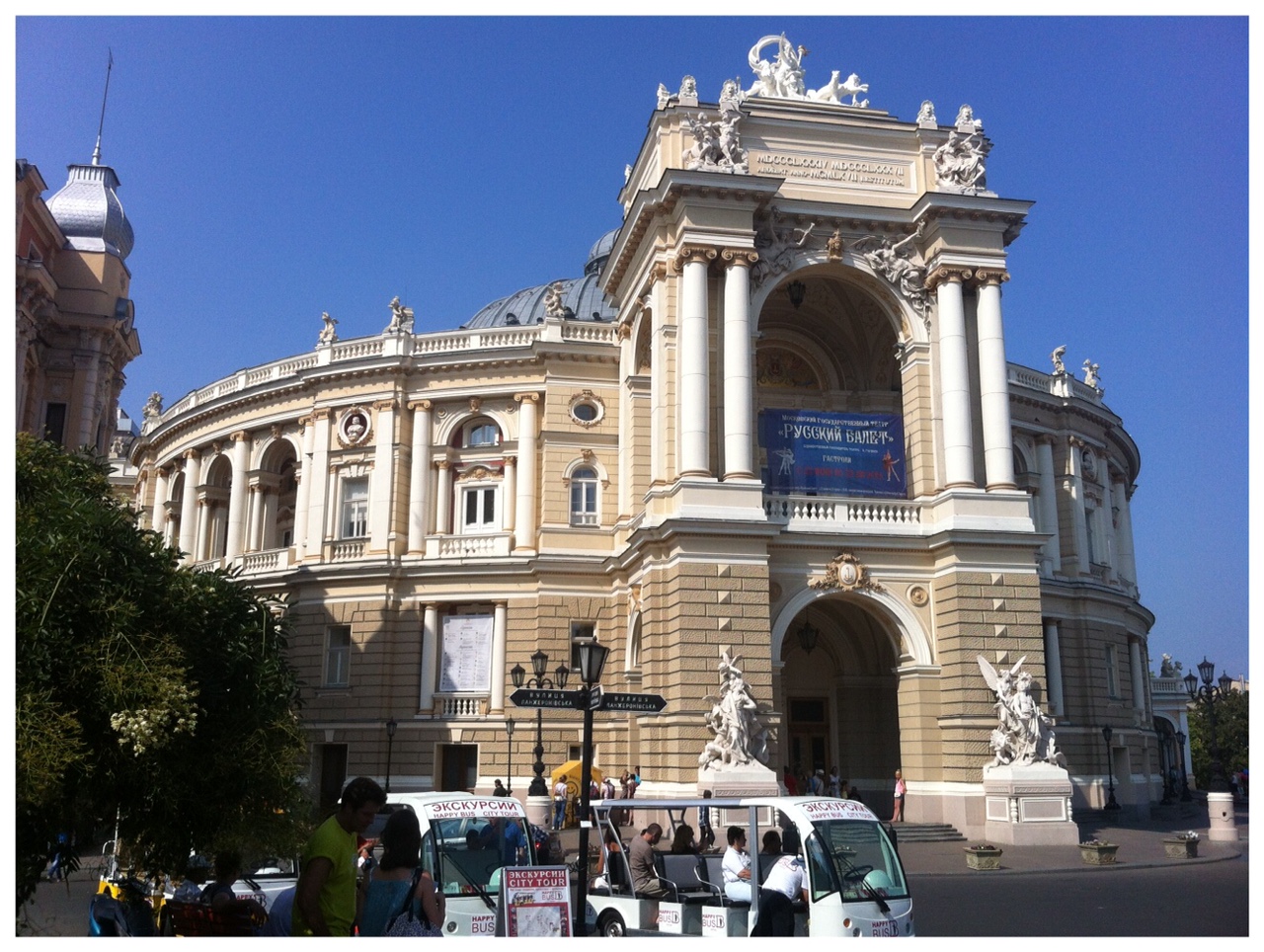Ukraine: a country to sell off on the diplomatic market?
By Pierre Scordia - Published in Libération (11/08/2015)
We all remember the image of Victoria Nuland (US Assistant Secretary of State) on Maidan square handing out sandwiches to the brave protesters who were outraged by the policies of the then President of Ukraine, Viktor Yanukovych. This moral and political support from the US during Kyiv’s popular uprising and revolution could not but be welcomed since it chimed with the democratic and liberal principles of the West. A few weeks later when it seemed inevitable that Yanukovych’s regime would fall, a hacked phone conversation between US Ambassador Geoffrey Pyatt in Kyiv and Victoria Nuland was released to the public (probably by the Russians) in which Nuland was sorting out and distributing roles in a future transitional Ukrainian government and swore with her famous "Fuck the EU!". One might be shocked by such comments but they paved the way for an orderly transition, validated by fair and democratic presidential and legislative elections that took place respectively three and eight months later. Let’s not forget that merely 2% of Ukrainian electors cast their vote for the far-right parties whilst their country was already partly invaded by Russian troops and accused by Russian media propaganda of being run by neo-Nazis.
This second Ukrainian revolution (within the space of 10 years) took place in a tense diplomatic climate between the United States and Russia. The Arab Spring, followed by the overthrow of Gaddafi’s regime in Libya worsened relations between the two countries. When Medvedev’s Russia abstained from the 1973 UN Resolution on Libya, it was firstly to protect the civilian population and secondly, to improve relations with Washington after Georgia’s war in 2008. However, on March 21, 2011, Putin publicly expressed his "personal disagreement” with President Medvedev’s policy over Libya. Vladimir’s return to the Kremlin as Head of State in March 2012 ended Russian concessions. The Syrian crisis was the first example. As a result, Obama did not hesitate to enact a last minute turnaround, ignoring his red line, by accepting the Russian proposal to dismantle Assad’s chemical weapons. This Russian diplomatic victory was a blow to the Democratic president’s international credibility. While Obama managed to sidestep another military adventure and retain a semblance of dialogue or cooperation with Moscow, his concession amounted to an abandonment of the moderate opposition in Syria.
In this sense, US support for the pro-Western Ukrainian democratic movement could recall the famous phrase of Cardinal Richelieu to the Duke of Rohan when he demolished the Duke’s castle: "My lord, I just threw a good ball into your bowling game". The ball was explosive. The Ukrainian revolution followed by a transition to liberal democracy could in the long run have signalled the end of the authoritarian and kleptomaniac regime of President Putin. He had to act and act fast! Though he waited for the end of the Sochi Olympics, soon after he invaded Crimea and annexed it just 15 days later. He organised coups in Lugansk, Donetsk and Kharkiv, publicly justified the existence of a Nova Russia extending from Bessarabia to Donbass, unofficially supported the referendums hurriedly organised in Lugansk and Donetsk Oblasts and furthermore armed and financed their new illegal entities by sending military reinforcements (without the West imposing significant sanctions). Only the destruction of the Malaysia Airlines Boeing 777 gave reluctant Western countries a moral obligation to impose severe economic and financial sanctions against Russia.
Until last month US policy in the Russian-Ukrainian conflict was notably subtle and discreet. The Americans remained aloof from all talks, wisely leaving the Europeans to interfere and negotiate both Minsk treaties which, by the way, were never respected by Moscow. This is the reason why we are now dealing with Minsk II plus umpteen new Russian demands. Nuland’s famous "Fuck the EU!" would not have fallen on deaf ears. The Russian bear seems willing to negotiate seriously only with Washington, on a one-to-one basis, like in the hay days of the Cold War. Germany and France, by opposing military aid, refusing a possible application of Ukraine to NATO, limiting hopes for rapid accession to the EU, accepting the idea of a federal Ukrainian state with two pro-Russian entities imposed by Russian strong arm tactics, have lost much of their credibility among politicians and Ukrainian people while the Americans in their eyes remain their most reliable and staunch ally.
The US Secretary of State’s visit to Sochi, on May 12, surprised and intrigued many. What were the real issues behind the bilateral negotiations between John Kerry and Sergey Lavrov? The American statement suggested that Syria, Iran and Ukraine would be on the agenda. In reality, the meeting led to the establishment of a Russian-American diplomatic channel on Ukrainian Affairs lead by Nuland and Grigory Krasin, the Russian Deputy Foreign Minister.
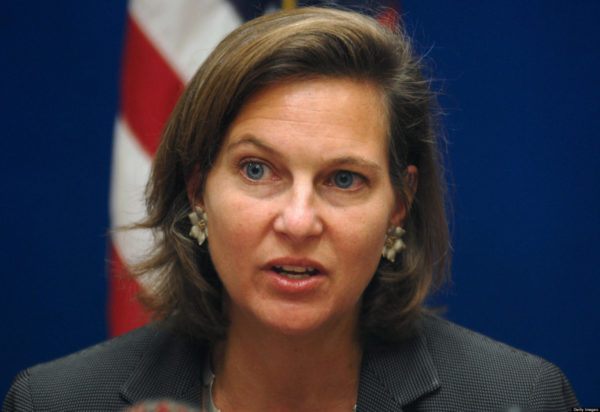
Victoria Nuland
A few weeks later, Chancellor Merkel and President Hollande pressed Petro Poroshenko to accelerate the process, constitutionally guaranteeing the special status of the two separatist entities from Donbass even though the Protocol of Minsk II requires as a condition a cease-fire, which is still not fully respected by the pro-Russian forces. Ukrainian authorities received this new Franco-German demand to respond to the wishes of Moscow and Washington, very coldly. It was not until Victoria Nuland arrived in Kyiv that the most recalcitrant MPs, including those behind the Maidan movement, were convinced to vote for this constitutional change. She invited them the day before to the US Embassy and the next day, on voting day, made the trip herself to Rada with Ambassador Pyatt. However, it was thanks to the backing of opposition MPs, those of the former Party of Regions of ousted president Yanakovitch, that the constitutional amendment law was passed.
It is probably shocking to many Ukrainians to witness such a blatant foreign intervention in a vote of a democratically elected assembly. Perhaps they had been too naive. The fact remains that the priority for the US administration is a timid rapprochement with Tehran, the destruction of Islamic State and reaching a peaceful solution in Ukraine as fast as possible. None of these goals can be achieved without Russian participation.
One can understand American logic; however, it constitutes a huge risk. By incorporating two autonomous militarised entities of the Donbass, Ukraine constitutionally guarantees the survival of the old kleptomaniac system that has so long harmed the development of this country. It gives carte blanche to Russia to intervene in Ukraine’s internal affairs and even in her foreign policy. It forces Ukrainian taxpayers to pay for the reconstruction of the Donbass region. Worse, this status quo policy could, in the foreseeable future, give rise to a widespread pessimism among the Ukrainian populace and entice far-right militias, well armed, to attempt to take power by force. Finally, it would validate Russian strategy to create secessionist pockets in all countries of the former Soviet Union, establishing a system of subjugation.
The best solution to ensure the prosperity of the Ukrainian population would be for Ukraine to distance herself from the new political entities created by Russia, forcing the Kremlin to pay the price for their aggressive and destructive policy.
As the Mexican President Porfirio Diaz said: "Poor Mexico, so far from God, so close to the United States", we can similarly conclude that the tragedy of Ukraine is "Poor Ukraine, so far from the USA, so close to Russia!"
It turns out Nuland’s sandwiches have a rather bitter taste, after all.
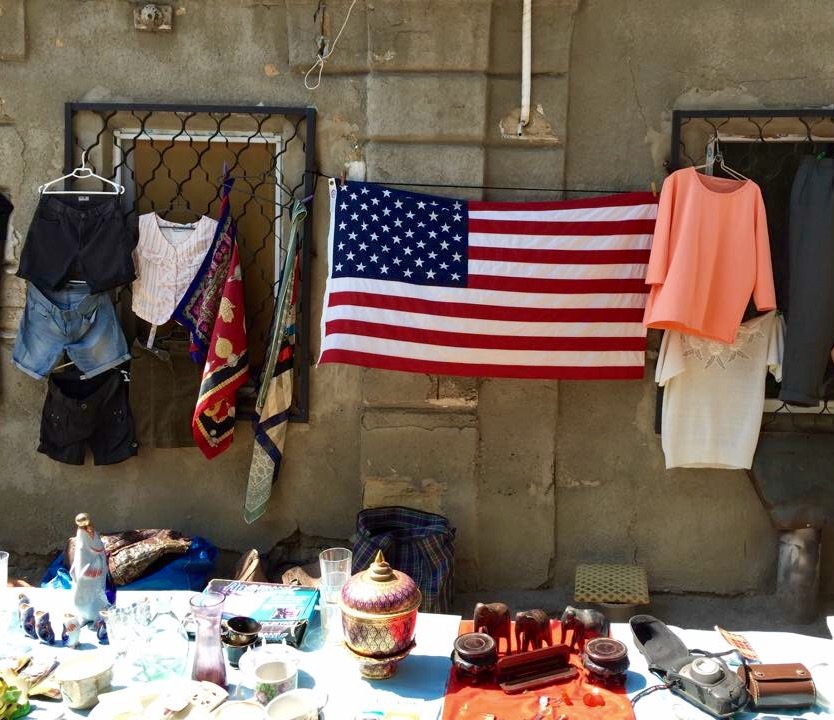 Odessa, 2014
Odessa, 2014

